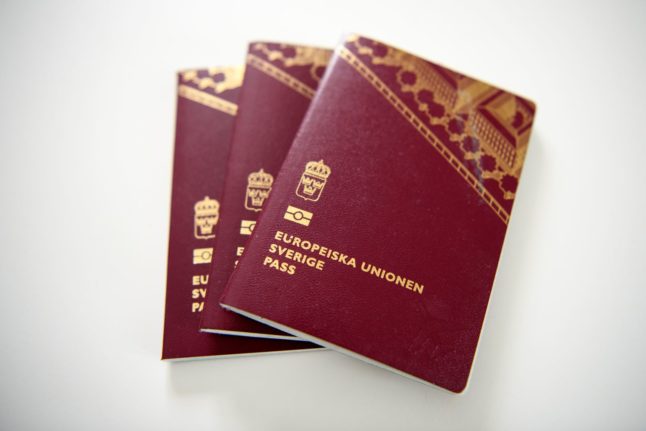Following a poll of 4,600 people in Sweden about their views on Swedish citizenship, experts gathered at the government offices at Rosenbad to discuss the results and to find out how citizenship can be made more valuable for would-be Swedes.
The topic was discussed by a panel consisting of professors, lawyers, political scientists, as well as the researchers from Statistics Sweden (Statistiska centralbyrån, SCB) who carried out the poll.
Among these findings, a vast majority of people surveyed found it “very important” to have Swedish citizenship, the right to vote, as well as the right to live in and be protected by the country.
The survey is linked to government plans to review the role of citizenship in promoting integration.
Andreas Johansson Heinö, a political scientist and researcher at the University of Gothenburg, argued that according to his own research, Swedes want to see a set of requirements met before foreigners can be considered Swedish citizens.
When he polled 1,000 people, he discovered that 75 percent of respondents claimed to want would-be citizens to have a basic knowledge of the Swedish language.
“We need to introduce some sort of language and cultural knowledge requirements before people can become citizens,” he told The Local.
Johansson Heinö explained that his survey revealed that a majority of people agreed that potential Swedes ought to have a basic knowledge of Swedish history too, and should agree with Swedish values.
“I totally agree with the precept that we need to strengthen the value of citizenship in Sweden, because it’s a valuable asset for equality in a diverse society,” he explained.
“The problem is that even though they become citizens; they’re still not conforming,” he said.
“But this is more of a problem for the Swedish majority.”
Furthermore, Johansson Heinö argued that it’s impossible for a newcomer to become Swedish if Swedishness is defined by ethnicity, language, religion and skin colour.
Other factors, however, are genuinely important, he argued.
“I argue that we need a common language to be able to have a society together, we need some basic knowledge about our history, our culture, and how society works,” he said.
Meanwhile, Pakistan-born Qaisar Mahmood, a manager at the Swedish National Heritage Board (Riksantikvarieämbetet), explained that getting Swedish citizenship should be seen as a valuable opportunity to connect.
“Whether you are in a football team or at work, the sense of belonging is important for human beings,” he told The Local.
“But formalities are not enough. If you play football, it may be important to be seen as a team mate and to cherish the sense of belonging. You can’t say that you play for one team and belong to another, it doesn’t work like that.”
“It’s like that with countries, having a sense of [being in] a collective with people living in states sharing common laws and social security. It should be easier to be a citizen and this is important.”
However, Mahmood explained that physical appearance plays a big part in how people with different backgrounds are judged in Sweden.
“The idea of belonging to the state is still based on ethnicity, and this is often interpreted by how you look. I think that’s one of the reasons people from other northern countries don’t feel the same urge as someone who looks like me to be part of the Swedishness.”
Meanwhile, Johansson Heinö, whose book Gillar Vi Olika was published in September and tackles similar issues, explained that his ambition was more about finding the answers, not giving them.
“My goal is to improve the quality of the debate of the integration into Sweden,” he said.
“If we really want to become a multicultural society we need to confront our own self-image.”
Following the discussion, the panel will present its comprehensive findings to the government by April 1st next year.
Oliver Gee



 Please whitelist us to continue reading.
Please whitelist us to continue reading.
Member comments